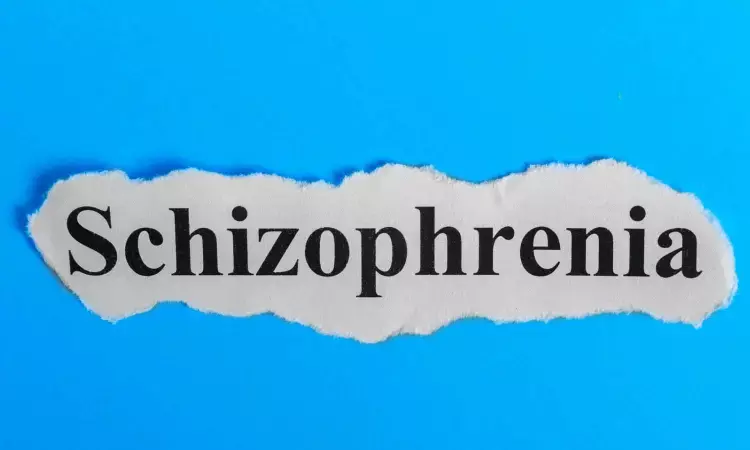- Home
- Medical news & Guidelines
- Anesthesiology
- Cardiology and CTVS
- Critical Care
- Dentistry
- Dermatology
- Diabetes and Endocrinology
- ENT
- Gastroenterology
- Medicine
- Nephrology
- Neurology
- Obstretics-Gynaecology
- Oncology
- Ophthalmology
- Orthopaedics
- Pediatrics-Neonatology
- Psychiatry
- Pulmonology
- Radiology
- Surgery
- Urology
- Laboratory Medicine
- Diet
- Nursing
- Paramedical
- Physiotherapy
- Health news
- Fact Check
- Bone Health Fact Check
- Brain Health Fact Check
- Cancer Related Fact Check
- Child Care Fact Check
- Dental and oral health fact check
- Diabetes and metabolic health fact check
- Diet and Nutrition Fact Check
- Eye and ENT Care Fact Check
- Fitness fact check
- Gut health fact check
- Heart health fact check
- Kidney health fact check
- Medical education fact check
- Men's health fact check
- Respiratory fact check
- Skin and hair care fact check
- Vaccine and Immunization fact check
- Women's health fact check
- AYUSH
- State News
- Andaman and Nicobar Islands
- Andhra Pradesh
- Arunachal Pradesh
- Assam
- Bihar
- Chandigarh
- Chattisgarh
- Dadra and Nagar Haveli
- Daman and Diu
- Delhi
- Goa
- Gujarat
- Haryana
- Himachal Pradesh
- Jammu & Kashmir
- Jharkhand
- Karnataka
- Kerala
- Ladakh
- Lakshadweep
- Madhya Pradesh
- Maharashtra
- Manipur
- Meghalaya
- Mizoram
- Nagaland
- Odisha
- Puducherry
- Punjab
- Rajasthan
- Sikkim
- Tamil Nadu
- Telangana
- Tripura
- Uttar Pradesh
- Uttrakhand
- West Bengal
- Medical Education
- Industry
Transcranial magnetic stimulation Found Effective in Reducing Auditory Hallucinations in Schizophrenia: Study

Researchers have found that repetitive transcranial magnetic stimulation (rTMS) can efficiently reduce the symptoms of auditory verbal hallucination in schizophrenic patients. It was concluded on the basis of a randomized controlled trial where scores for the hallucination severity showed a highly significant reduction in patients treated with rTMS compared to sham-treated patients. The study was conducted by HuA Q. and colleagues published in JAMA Network Open.
Schizophrenia is a mental disorder characterized by auditory verbal hallucination whereby the drugs and prescribed doses are usually unable to be treated. Despite that these symptoms may be significantly reduced by pharmacologic treatments, they are very often accompanied by severe disturbances of metabolism as well as by movement disorders. This study aimed at evaluating the efficacy of rTMS for the treatment of auditory hallucinations and if precise neuronavigation will improve the outcome of the treatment.
Between September 2016 and August 2021, 66 participants with schizophrenia and prominent auditory verbal hallucinations were recruited from the Anhui Mental Health Center to participate in this six-week, double-blind, randomized clinical trial. Of the 66 recruited participants, 62 completed the two-week treatment phase; 53% of whom were women, with an average age of 27.4 years.
Participants were recruited into an active rTMS treatment group (n = 32) and a sham control group (n = 30). The active treatment consisted of three daily rTMS sessions over two weeks using a 70-mm figure-of-8 air-cooled coil, while the sham device just released sound and vibration but no current. This was crucial: the use of neuronavigation will optimize coil placement during rTMS sessions to target precisely the brain region associated with the generation of auditory hallucinations.
• Compared with those receiving sham rTMS, significantly more of the patients in the active rTMS group showed a decrease in scores on the AHRS at week 2 (-5.96 points; 95% CI = 3.42 to 8.50, P < 0.001). At week 6, the difference was even larger, at -7.89 points (95% CI = 4.77 to 11.01, P < 0.001).
• At six weeks, RTerapy was sustained and at both week 2 and week 6, there were significant time-by-group interactions for AHRS scores (P<0.001 for both time points).
• Higher strength of the electric field due to TMS was associated with greater reductions in hallucination severity, P=0.002, implying that treatment accuracy contributes to this effect.
Based on this study's findings, rTMS with neuronavigation significantly reduces auditory verbal hallucinations in patients with schizophrenia. This advance would be promising in symptom management in schizophrenia, however, provided that the technique becomes more accessible for broader clinical utility.
Reference:
Hua, Q., Wang, L., He, K., Sun, J., Xu, W., Zhang, L., Tian, Y., Wang, K., & Ji, G.-J. (2024). Repetitive transcranial magnetic stimulation for auditory verbal hallucinations in schizophrenia: A randomized clinical trial. JAMA Network Open, 7(11), e2444215. https://doi.org/10.1001/jamanetworkopen.2024.44215
Dr Riya Dave has completed dentistry from Gujarat University in 2022. She is a dentist and accomplished medical and scientific writer known for her commitment to bridging the gap between clinical expertise and accessible healthcare information. She has been actively involved in writing blogs related to health and wellness.
Dr Kamal Kant Kohli-MBBS, DTCD- a chest specialist with more than 30 years of practice and a flair for writing clinical articles, Dr Kamal Kant Kohli joined Medical Dialogues as a Chief Editor of Medical News. Besides writing articles, as an editor, he proofreads and verifies all the medical content published on Medical Dialogues including those coming from journals, studies,medical conferences,guidelines etc. Email: drkohli@medicaldialogues.in. Contact no. 011-43720751


